H-2 Worker is a american film of genre Documentary directed by Stéphanie Black released in USA on 1 january 1990
H-2 Worker (1990)

If you like this film, let us know!
Released in USA 1 january 1990
Length 1h7
Directed by Stéphanie Black
OriginUSA
Genres Documentary
Themes Environmental films, Films about the labor movement, Documentary films about business, Documentary films about environmental issues, Documentary films about politics, Political films
Rating71%










H-2 Worker is a 1990 documentary film about the exploitation of Jamaican guest workers in Florida's sugar cane industry. It was directed by Stephanie Black, and won the Sundance Film Festival Grand Jury Prize for documentaries in the 1990 festival. It was shot in Belle Glade, Clewiston, and Okeelanta, Florida as well as Jamaica and includes cane fields and worker camps (Ritta Village, Prewitt Village) owned by US Sugar Corporation and the Okeelanta Corporation.
The cane harvesters were brought in to perform the autumn harvest of sugar cane under the H-2A Visa program. The Jamaicans replaced earlier generations of Bahamian seasonal workers who in turn replaced migrant labor recruited from the Cotton Belt (region) in the first half of the 20th century. A documentary short that accompanies the DVD version of the film states that human labor was abandoned for mechanical harvesters in 1992.
The film features interviews with a United States Department of Labor official, a Florida Sugar Cane League official, Jamaican Prime Minister Michael Manley, local merchants, and a dozen or so field workers. It also includes footage of César Chávez, US Representative Thomas Downey, and US Senator Bill Bradley.
Comments
Leave comment :
Suggestions of similar film to H-2 Worker
There are 1 films with the same director, 8965 with the same cinematographic genres, 9361 films with the same themes (including 4 films with the same 6 themes than H-2 Worker), to have finally 70 suggestions of similar films.If you liked H-2 Worker, you will probably like those similar films :

Life and Debt (2003)
, 1h26Directed by Stéphanie Black
Origin USA
Genres Documentary
Themes Seafaring films, La mondialisation, Politique, Transport films, Documentaire sur l'altermondialisme, Political films
Rating73%





Ce documentaire porte un regard sur la situation économique en Jamaïque depuis l'accession du pays à l'indépendance, le 6 août 1962. Il s'intéresse particulièrement au rôle du Fonds monétaire international et de la Banque mondiale dans la globalisation de l'économie du pays. Ceux-ci ont en effet accordé plusieurs prêts au pays pour l'aider dans son développement, à la condition qu'il mène une politique de déréglementation, de privatisation et d'ouverture au commerce extérieur. Cette politique aurait d'après le film non pas conduit à une amélioration de la situation, mais au contraire à une augmentation progressive de la dette publique jamaïcaine, qui atteint de nos jours 7 milliards de dollars. L'agriculture du pays aurait été fortement affaiblie, de par la concurrence des denrées étrangères (majoritairement américaines), subventionnées et donc moins chères.
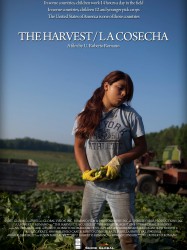
The Harvest (La Cosecha) (2011)
, 1h20Origin USA
Genres Documentary
Themes Films about children, Environmental films, Films about the labor movement, Documentary films about business, Documentary films about law, Documentary films about environmental issues, Documentaire sur une personnalité, Documentary films about politics, Documentary films about child abuse, Political films, Films about child abuse
Rating69%






The Wanted 18 (2014)
, 1h15Origin Canada
Genres Documentary, Animation
Themes Films set in Africa, Films about animals, Environmental films, Films about religion, Films about the labor movement, Documentary films about business, Documentary films about law, Documentary films about environmental issues, Documentary films about war, Documentary films about historical events, Documentary films about politics, Documentary films about religion, Documentaire sur le monde du travail, Films about cows, Political films, Films about Jews and Judaism, Mise en scène d'un mammifère
Rating71%





L'œuvre présente les efforts des Palestiniens habitant la ville et la région de Beit Sahour, en Cisjordanie, pour démarrer une petite industrie laitière locale au cours de la première Intifada, en cachant un troupeau de dix-huit vaches laitières aux forces de sécurité israéliennes qui considérait la production de laitages comme une menace pour la sécurité nationale d'Israël.
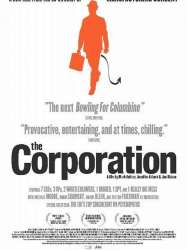
The Corporation (2003)
, 2h25Directed by Jennifer Abbott, Mark Achbar
Origin Canada
Genres Documentary
Themes Environmental films, Medical-themed films, La mondialisation, Films about the labor movement, Documentary films about business, Documentary films about environmental issues, Documentaire sur une personnalité, Documentary films about politics, Documentary films about health care, Documentaire sur le monde du travail, Films about psychiatry, Films about disabilities, Political films
Actors Michael Moore, Naomi Klein
Rating79%





The documentary shows the development of the contemporary business corporation, from a legal entity that originated as a government-chartered institution meant to affect specific public functions to the rise of the modern commercial institution entitled to most of the legal rights of a person. The documentary concentrates mostly upon North American corporations, especially those in the United States. One theme is its assessment of corporations as persons, as a result of an 1886 case in the United States Supreme Court in which a statement by Chief Justice Morrison R. Waite led to corporations as "persons" having the same rights as human beings, based on the Fourteenth Amendment to the United States Constitution.
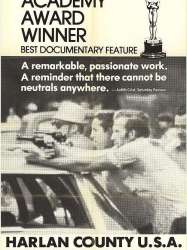
Harlan County U.S.A. (1977)
, 1h43Directed by Barbara Kopple
Origin USA
Genres Documentary
Themes Environmental films, Films about anarchism, Politique, Films about the labor movement, Documentary films about business, Documentary films about environmental issues, Documentary films about politics, Documentary films about technology, Documentary films about anarchism, Political films
Rating81%





Kopple initially intended to make a film about Kenzie, Miners for Democracy and the attempt to unseat Tony Boyle. When miners at the Brookside Mine in Harlan County, Kentucky went on strike in June 1972, Kopple went there to film the strike against Duke Power Company which the UMWA had helped to organize. The strike proved a more interesting subject, so Kopple switched the focus of her film.
 , 11minutes
, 11minutesDirected by Bill Justice, Bill Roberts
Origin USA
Genres War, Documentary, Animation
Themes Environmental films, Politique, Films about the labor movement, Documentary films about business, Documentary films about environmental issues, Documentary films about war, Documentary films about historical events, Documentaire sur le monde du travail, Political films, Documentary films about World War II, Children's films
Rating59%





Explication de l'histoire du maïs, depuis sa découverte par les indiens à son usage moderne puis son importance dans l'économie mondiale.

King Corn (2007)
, 1h28Origin USA
Genres Documentary
Themes Environmental films, Documentary films about business, Documentary films about environmental issues, Documentary films about historical events, Documentary films about politics, Political films
Actors Ian Cheney, Curtis Ellis
Rating69%





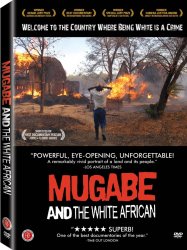
Mugabe and the White African (2009)
, 1h30Origin United-kingdom
Genres Documentary
Themes Films set in Africa, Environmental films, Films about racism, Documentary films about business, Documentary films about racism, Documentary films about law, Documentary films about environmental issues, Documentaire sur une personnalité, Documentary films about politics, Political films
Rating76%





En 2008, Mike Campbell – l’un des derniers fermiers blancs au Zimbabwe face au violent programme de réforme agraire – prend le risque sans précédent d’attaquer le Président Robert Mugabe devant le tribunal du SADC (Communauté de Développement Sud-Africain) afin de défendre ses droits. Son exploitation agricole emploie plus de 500 travailleurs et abrite également leurs familles. Mike Campbell accuse Mugabe et son gouvernement de discrimination raciale et de violation des Droits de l’Homme. Embarqués dans un procès hors du commun, Mike et sa famille vont devoir faire face à la violence et à la cruauté du régime du dictateur. Ce documentaire retrace leur combat.

Strawberry Fields (2006)
, 1hOrigin Israel
Genres Drama, Documentary, Fantasy
Themes Films set in Africa, Environmental films, Films about religion, Documentary films about business, Documentary films about law, Documentary films about environmental issues, Documentary films about war, Documentary films about historical events, Documentaire sur une personnalité, Documentary films about politics, Documentary films about religion, Political films, Films about Jews and Judaism
Actors Mitsuki Tanimura, Yuria Haga
Strawberry Fields points out that strawberries grown in Gaza are the only agricultural product marketed internationally as being of Palestinian origin. One of the major Gaza strawberry farms in located at Beit Lahiya. More than 1,500 tons of strawberries are exported from Gaza to Europe through the Israeli company Agrexco. In order to get overseas, however, the fruits need to pass through the checkpoint that separates Israel and Gaza. The 2005–2006 growing season coincided with the Israel's disengagement from Gaza and the rise of Hamas as the ruling political entity. The armed conflict between Israel and Hamas resulted in the closing of the border checkpoint. The strawberries grown at Beit Lahiya cannot leave Gaza, resulting in significant losses for the farmers and their Agrexco partners. Unable to transport their produce, the farmers have no choice but to dispose of their crop and prepare for the following year’s growing season.
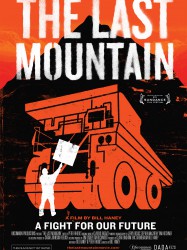
The Last Mountain (2011)
, 1h35Origin USA
Genres Documentary
Themes Environmental films, Documentary films about business, Documentary films about environmental issues, Documentary films about historical events, Documentary films about politics, Documentary films about technology, Political films
Rating76%





 Connection
Connection